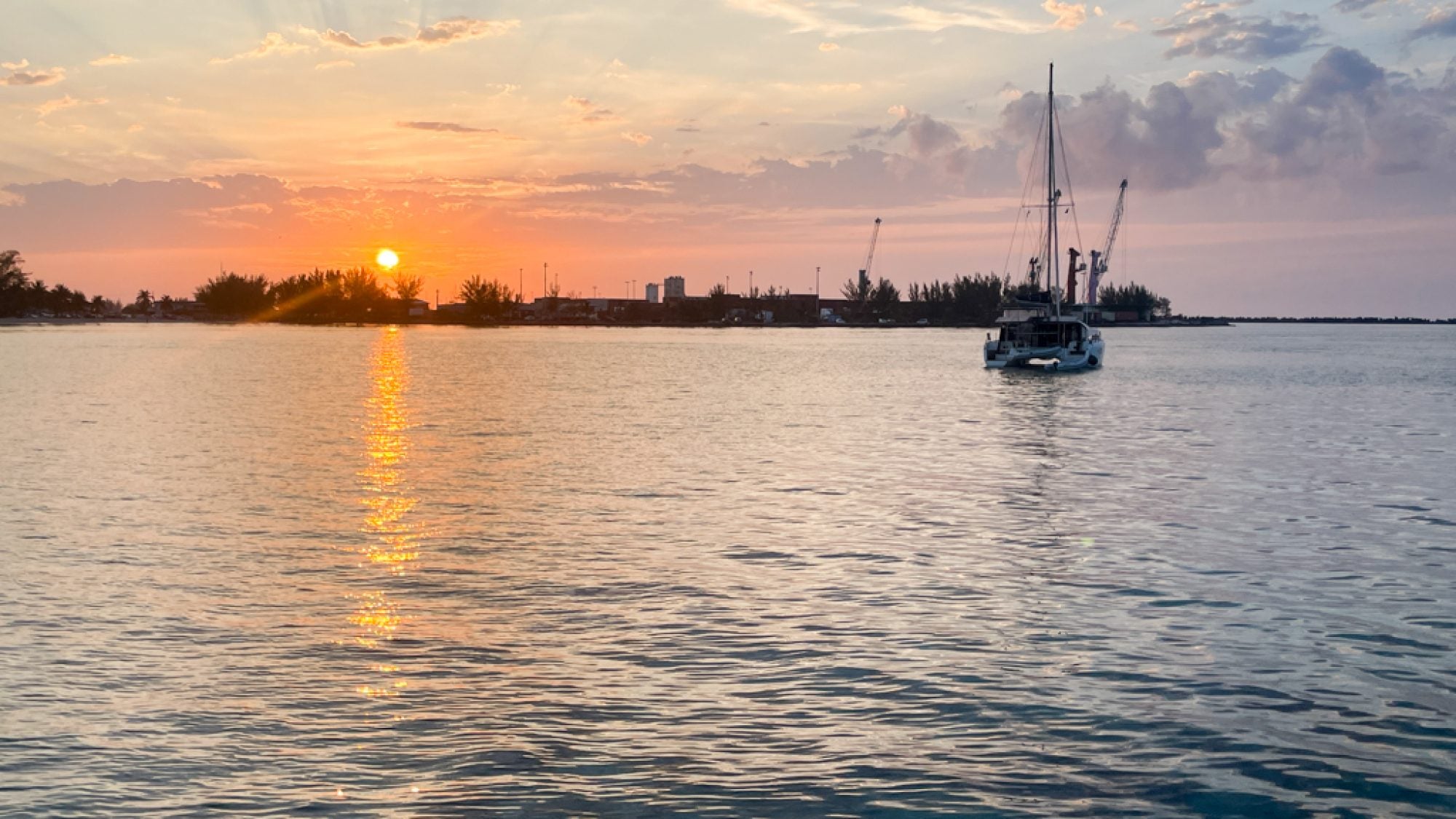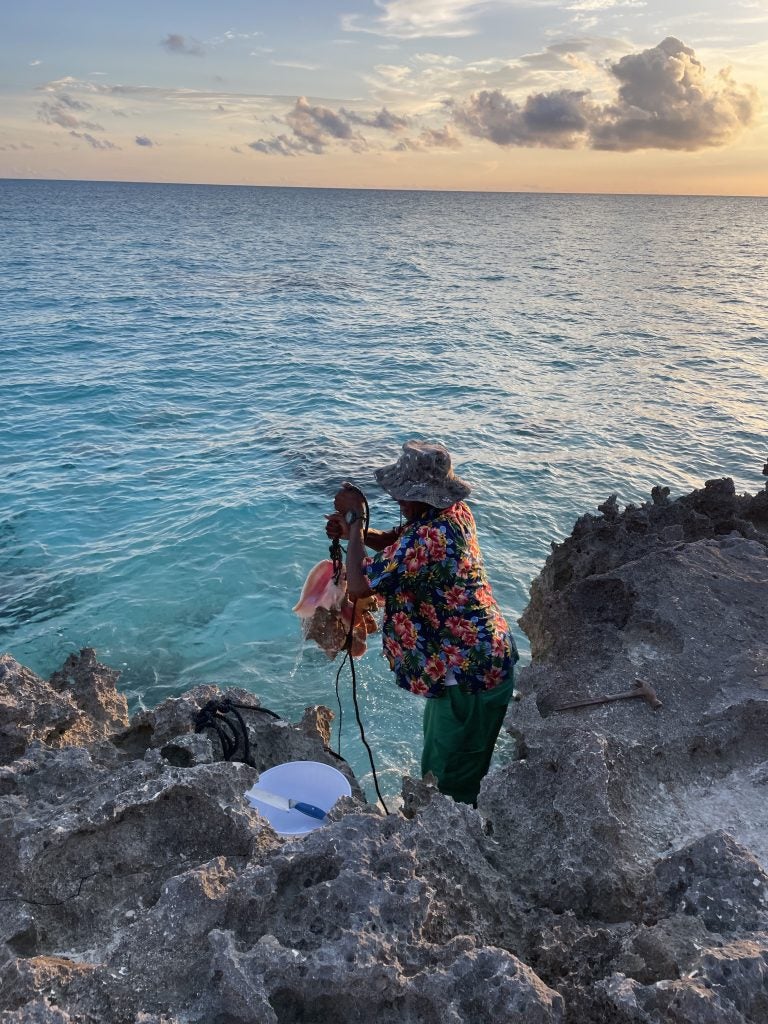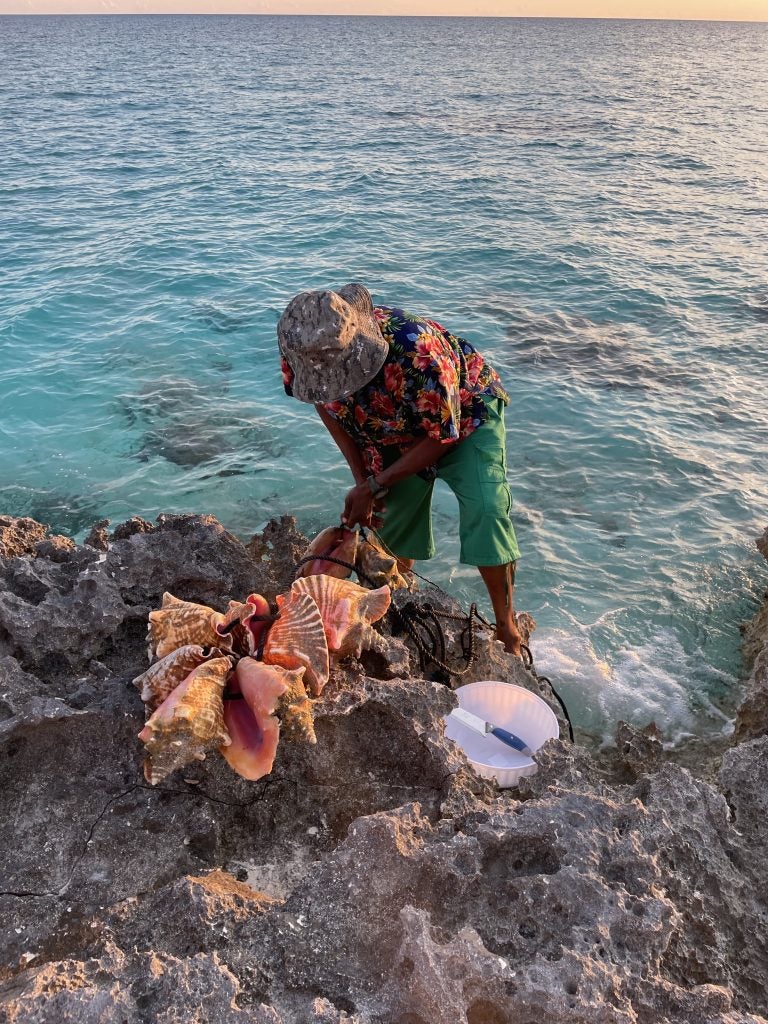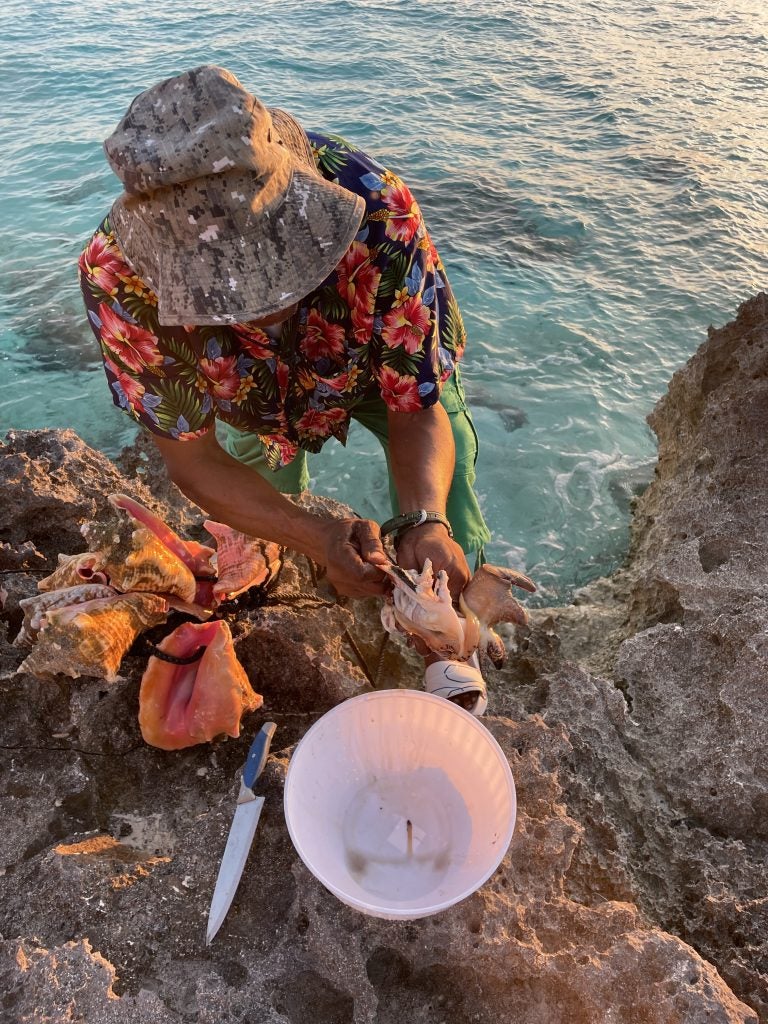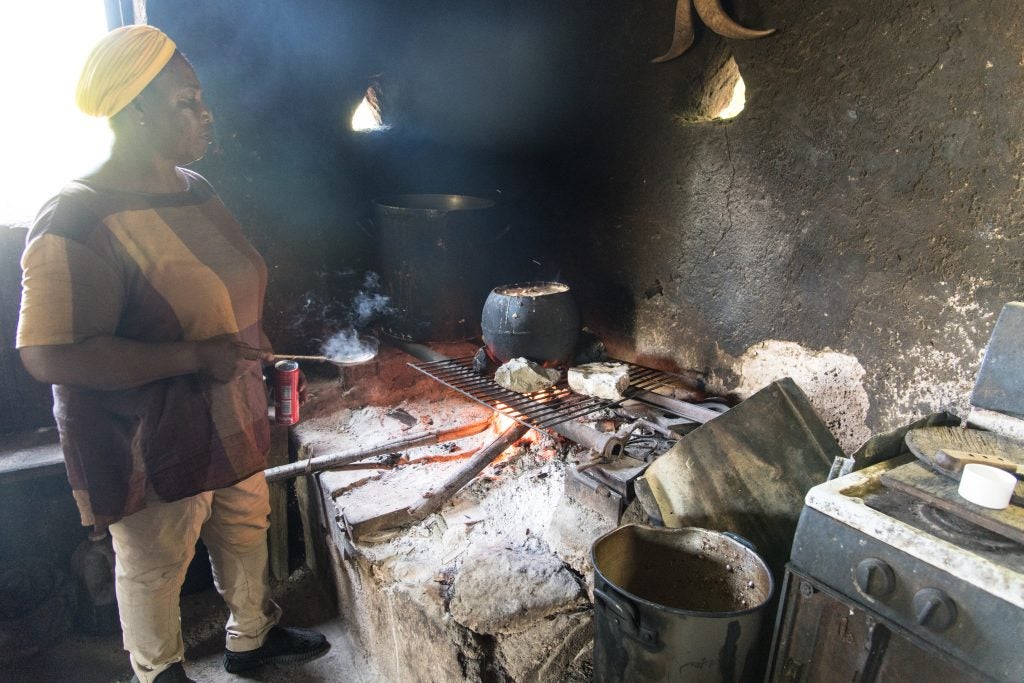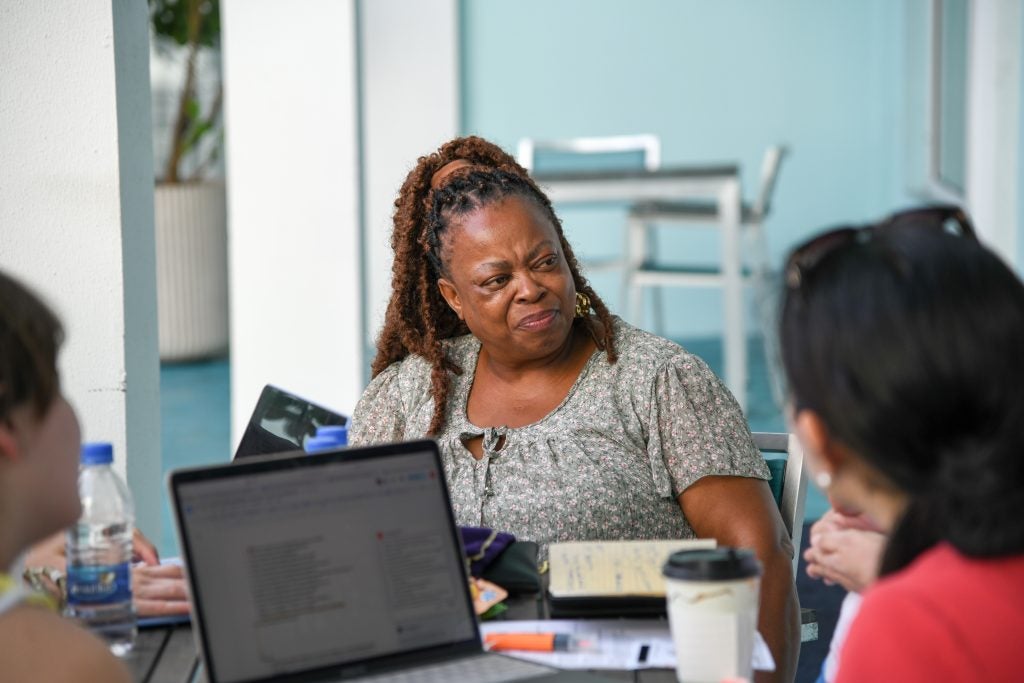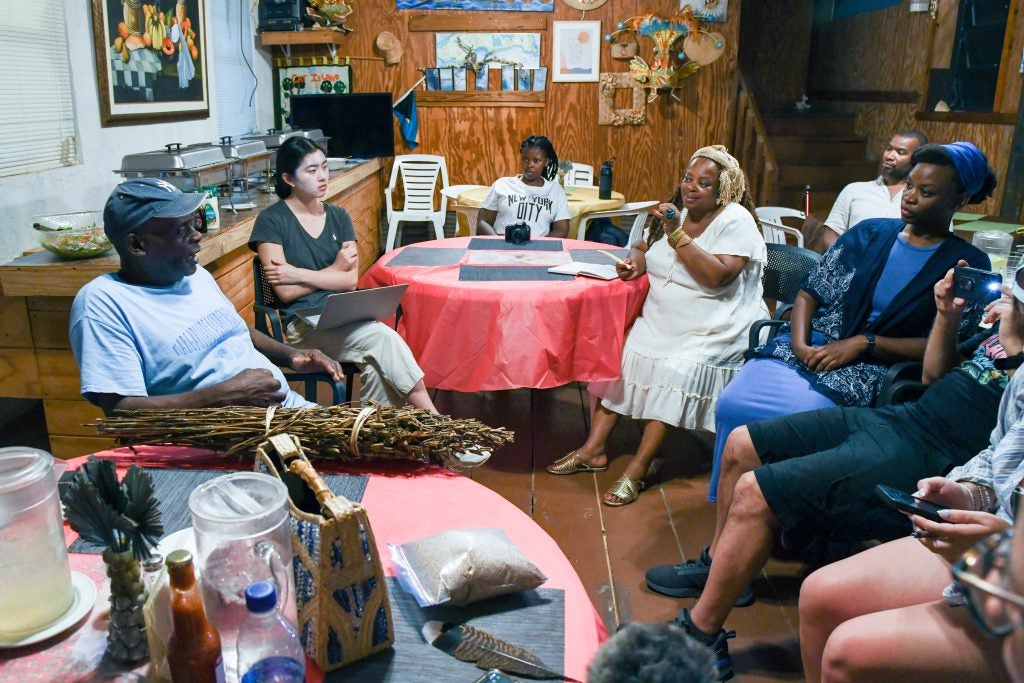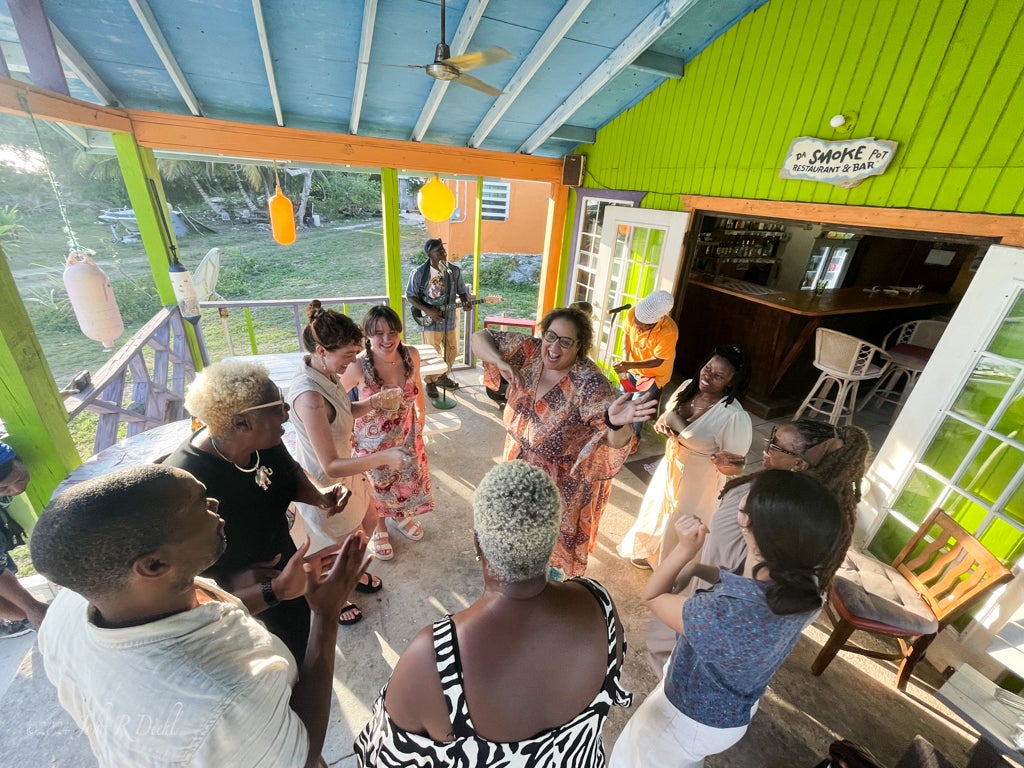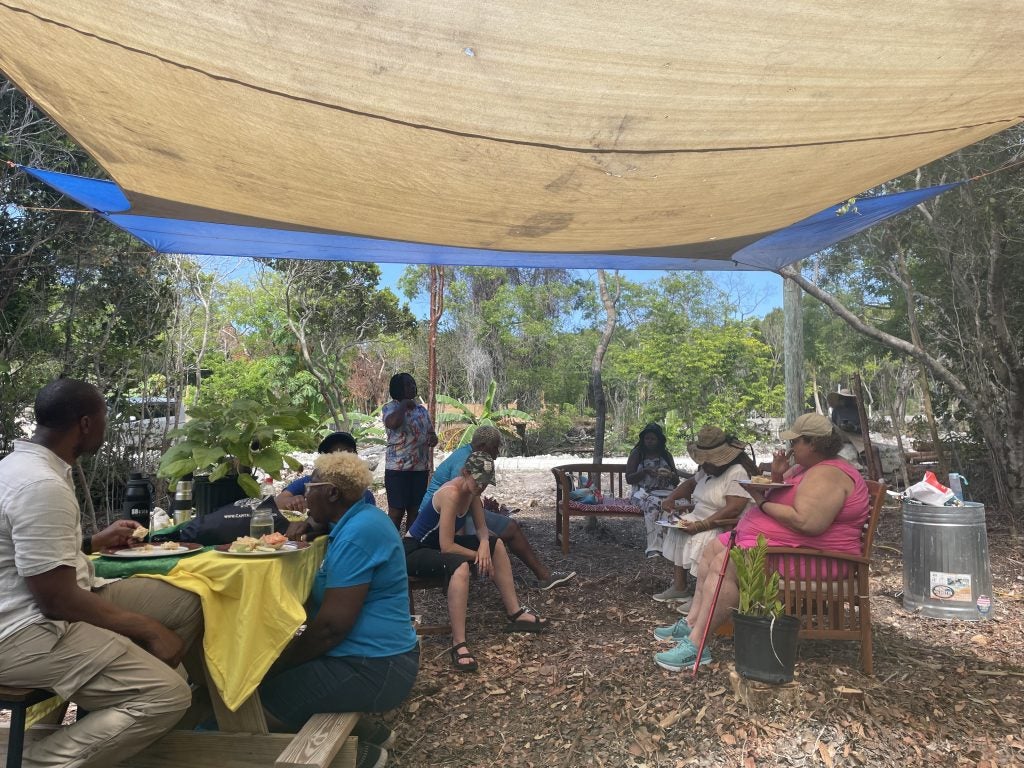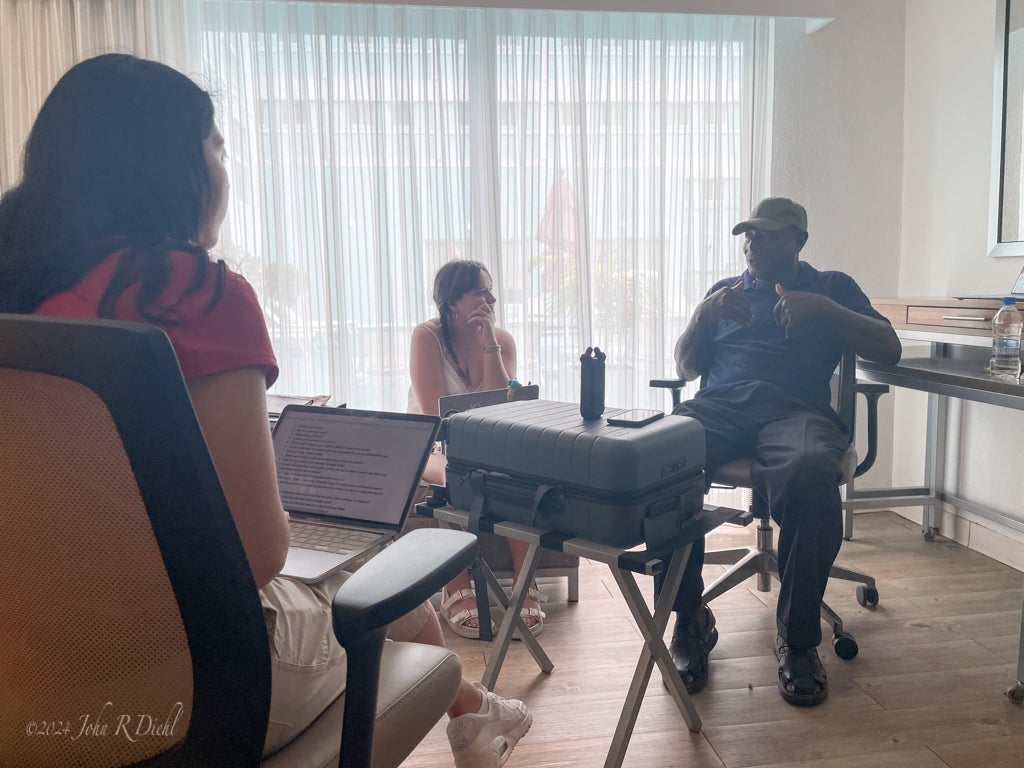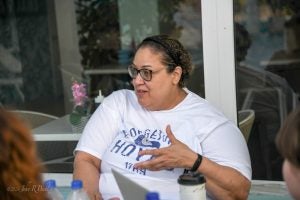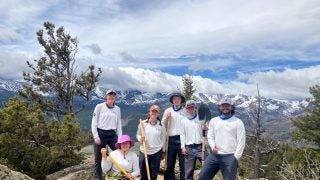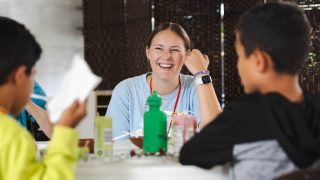On a breezy day in May, Hope Khodaei (SCS’27) touched down in the Bahamas.
She was nervous.
The 56-year-old was about to conduct research on Cat Island, a 48-mile stretch of beach and rock southeast of Nassau. She was the lead student researcher traveling alongside two undergraduate students, and they’d be driving up and down the island’s sole road, interviewing residents and archiving their oral histories.
Khodaei had done similar work in Maryland for Georgetown’s Racial Justice Institute (RJI), and she was a summer research fellow for the RJI. Still, coming into the trip, she didn’t feel like a “real” researcher,” she said.
“I was a little worried about stepping out of my comfort zone,” she said.
Little did she know, the trip would change the way she saw herself.
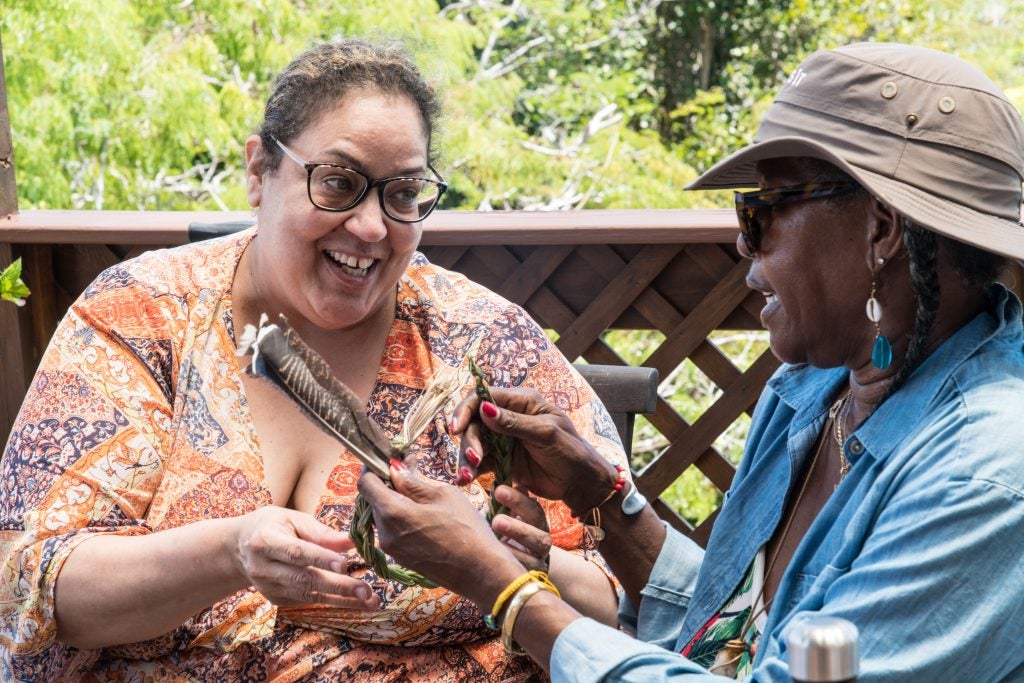
“I pushed myself to limits I didn’t think I had,” she said. “Cat Island solidified in my mind that I am a researcher. This opportunity supports the Jesuit value of ‘cura personalis’ in action. That’s why experiential learning opportunities are so important.”
Khodaei is part of a team of Georgetown students, spearheaded by Mia Massimino, director of Creative Projects for the Woodshed Center in the RJI, who are conducting ethnographic research for a cross-continent project Professor Anita Gonzalez is leading. Gonzalez is studying how enslaved people and their descendants remained resilient through their food and cultural traditions in Cat Island and the Chesapeake Bay region — areas that were influenced by the Jesuits who settled on coastal waterways that ferried enslaved people and goods.
On Cat Island, Gonzalez is studying culinary practices that have been passed down since Christopher Columbus who is believed to have first landed on its shores.
“I’m interested in how, on that isolated island, the African descendants have been able to maintain their foodways,” she said. “How can we use those existing food ways practices to support sustainable ways while ensuring health within Black communities?”
The island also provides ample terrain for outdoor learning, she said.
“I’m a big fan of experiential learning, and I think that’s why I’m working so hard to get two Laidlaw students to come to the Bahamas with me,” she said a few months before the trip. “Because what they’ll do — what I found with my students — it changes their lives.”
Learning in the Bahamas
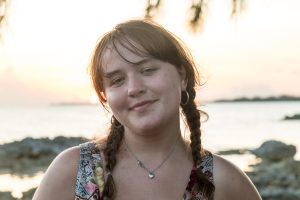
Samantha Wang (SFS’27) and Delaney Sebora (SFS’26) are two Laidlaw Scholars who joined Khodaei on the trip. The Laidlaw Scholarship is a two-year leadership program that supports students in conducting summer research.
For Sebora, the trip was a chance to step into a different type of classroom, particularly as she studies international history and decolonization.
“I’ve learned a lot about that in class, but it’s so much different to actually talk to people who live in those countries. Most of the time, we’re getting all of those ideas from a Western lens,” she said. “You can’t find these stories on the internet anywhere.”
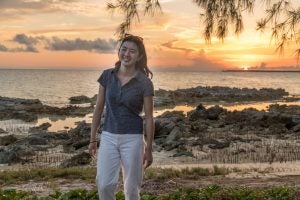
For Wang, the trip was also a chance to learn how to conduct research in the humanities and about the history and culture of the Bahamas, beyond its tourist destination reputation. She said it was particularly important to preserve these stories on an island adversely impacted by climate change.
“The land itself might be underwater in the next several centuries,” she said. “So I think in terms of a survival perspective, actually recording their histories and the way the people there live is important to have.”
For seven days, the three students traveled across the island to interview residents and learn about their stories and family history.
They learned how some residents dive for and cook conch, how they make straw hats, how they preserve tomatoes to make jam, how they pothole farm — planting seeds in between rocks — how they live reciprocally with the land.
